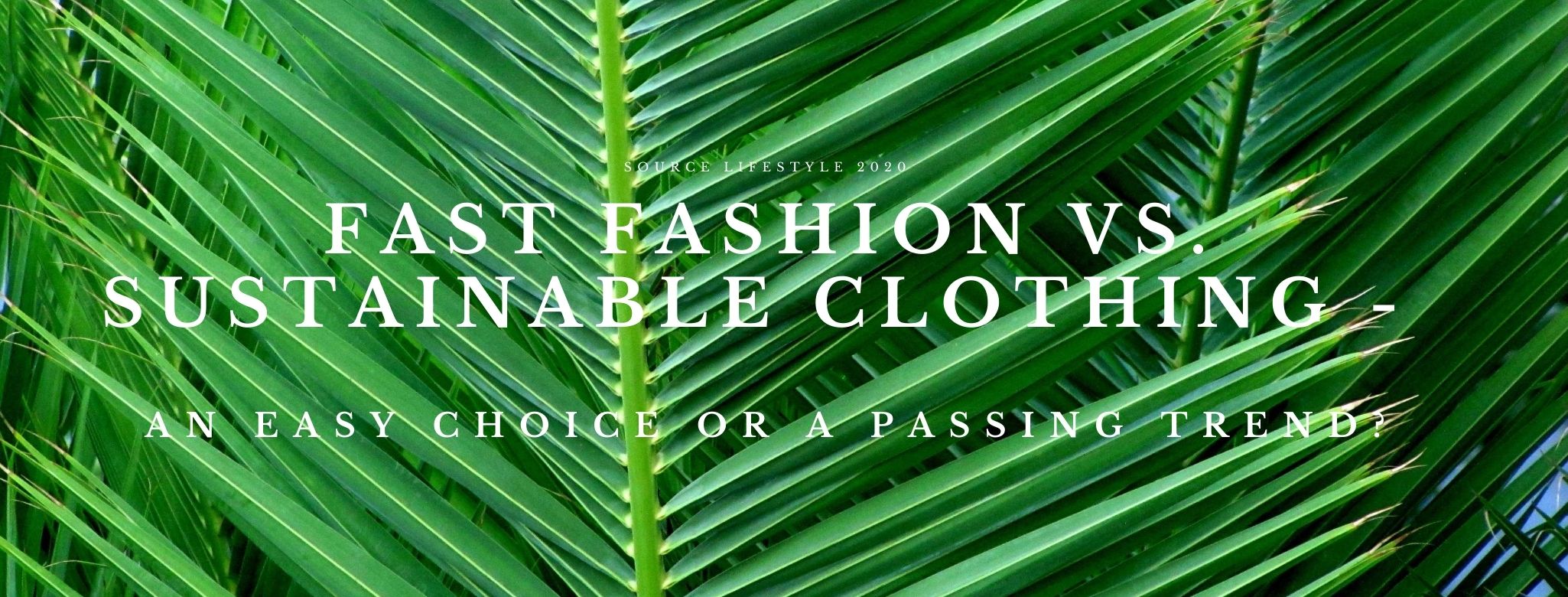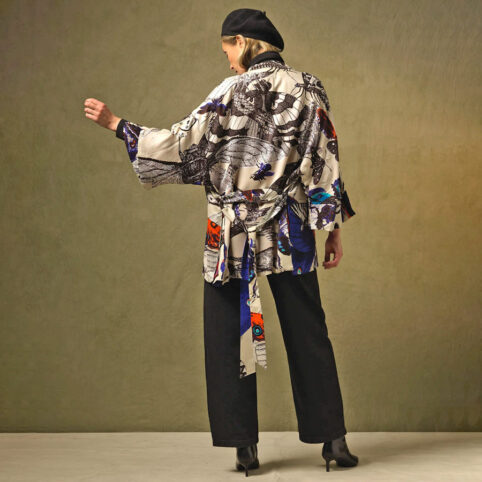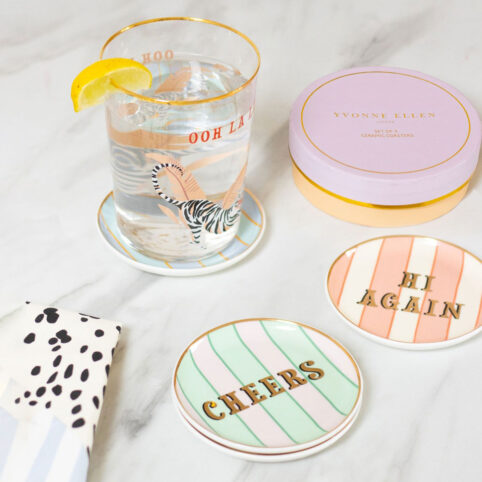Sustainable clothing is finally trending
One thing is clear – conscious buying has become a thing with more and more people choosing sustainable clothing over fast fashion items. The question is if it’s only a passing trend or the revolution of the fashion industry.
Current global events evidently show that our habits aren’t healthy for us nor the planet. As a result, people begin to wake up and re-think every aspect of their life and find ways of how to fulfil the needs without negatively affecting their health or the environment. Our diet, commute and daily habits are being called into question. Fashion is one of the main things that we’re so used to have barely ever thought of how the cheap, cute skirt has ended up in our wardrobe, barely worn.
For example, did you know that…
- In the United Kingdom, an estimated 350,000 tonnes (385,808 tons US), or about £140 million (USD 186 million) worth of used clothing, is thrown in the trash annually?
If you’re still struggling to make the decision between a slightly more expensive but better quality sustainable clothing item and a cheap, one-time peace of clothing that likely will never be worn again – here are 3 things to think about before you buy anything…
- Where did it come from?
Think about it – if you buy a dress for barely a fiver, what are the costs of making it? It is widely known that global brands use cheap workforce located in remote Asian regions. From one side, the constant demand provides much-needed workplaces in the poverty affected areas such as India or Bangladesh. Most would say that some work is better than none. But if the cute dress costs £5, have you thought about how much gets the person who made it? And have you thought about warehousing and factory costs, prices for the shipments across the world and the cost of the materials and eventually the profit that the global brands ads to the actual cost of the product? Yes – the workforce is last in line in getting their fair share. So, when buying a more expensive dress, remember that there is a family depending on it.
2. What is it made of?
Every year, 120 million trees are logged for fabrics including rayon, viscose, modal and other trademarked textiles. There is so much that we don’t know in terms of synthetic fabrics production, that if you want to feel good about purchasing clothes – you should avoid those materials altogether. Man-made fabrics like acrylic, polyester, rayon, acetate, and nylon are treated with thousands of harmful toxic chemicals during production. Do you really want to wear that?
Instead, choose clothes made of sustainable fabrics, such as linen, organic cotton, peace silk or recycled nylon. If you’d like to find out more about sustainable clothing and their fabrics, where they come from and what they replace, read all about it here.
3. Where is it going?
Finally, the question of the century – where is it all going? To a landfield? To the ocean? To the recycling factory or other consumer’s wardrobe? Needless to say, we’re all for the last to options! Clothing made from recycling materials have only recently entered the market and can be pricey to produce, meaning it will cost more for the end user. Whereas some of us are willing to pay for the peace of mind, quality clothing and some extra karma points – some of us will still choose the cheaper option.
That’s why second-hand shops are moving from the concept of being affordable just for ‘poorer’ people – to a heaven for consicous consumers. So, buy a new sustainable item, use it for as long as you want and re-sell it, or head straight to a second-hand shop for juicy bargains. Or…
Have a lookg at Source Lifestyle summer collection catalogue. We’ve got a large variety of great quality shirts, skirts, blouses, jumpsuits and dresses, all sourced from ethical brands. To make to more affordable to our loyal customers – all is for up to 50% off!







